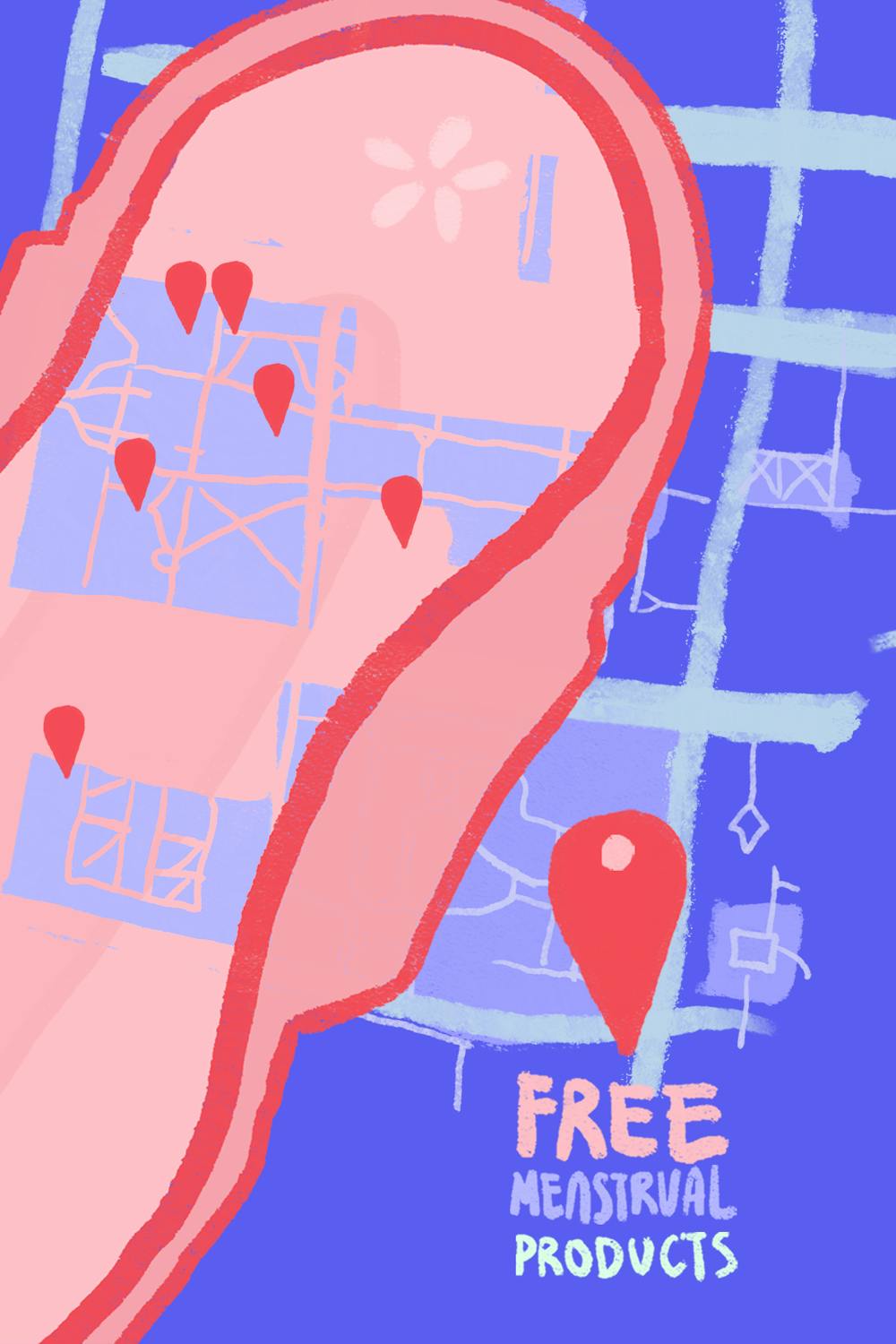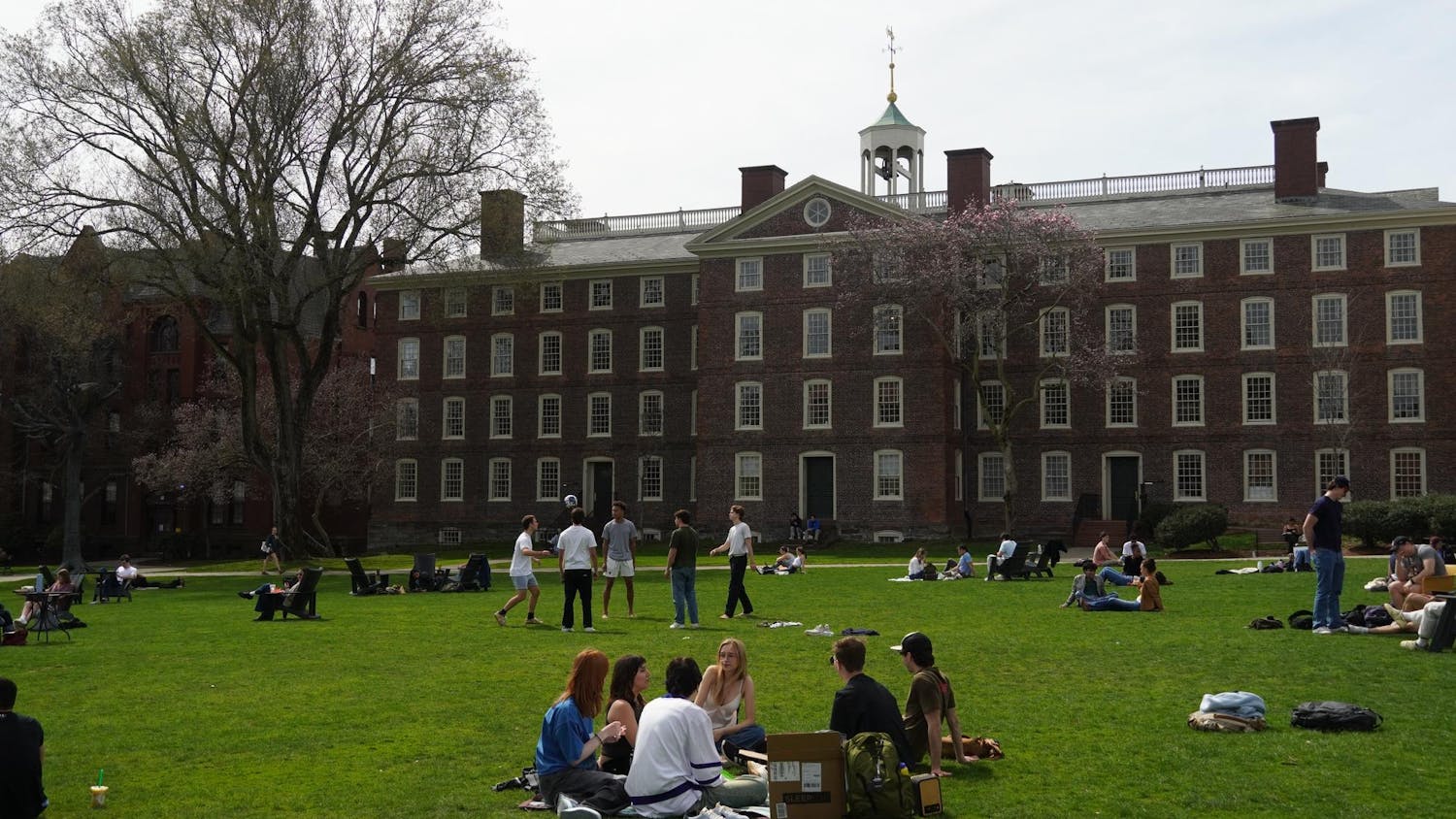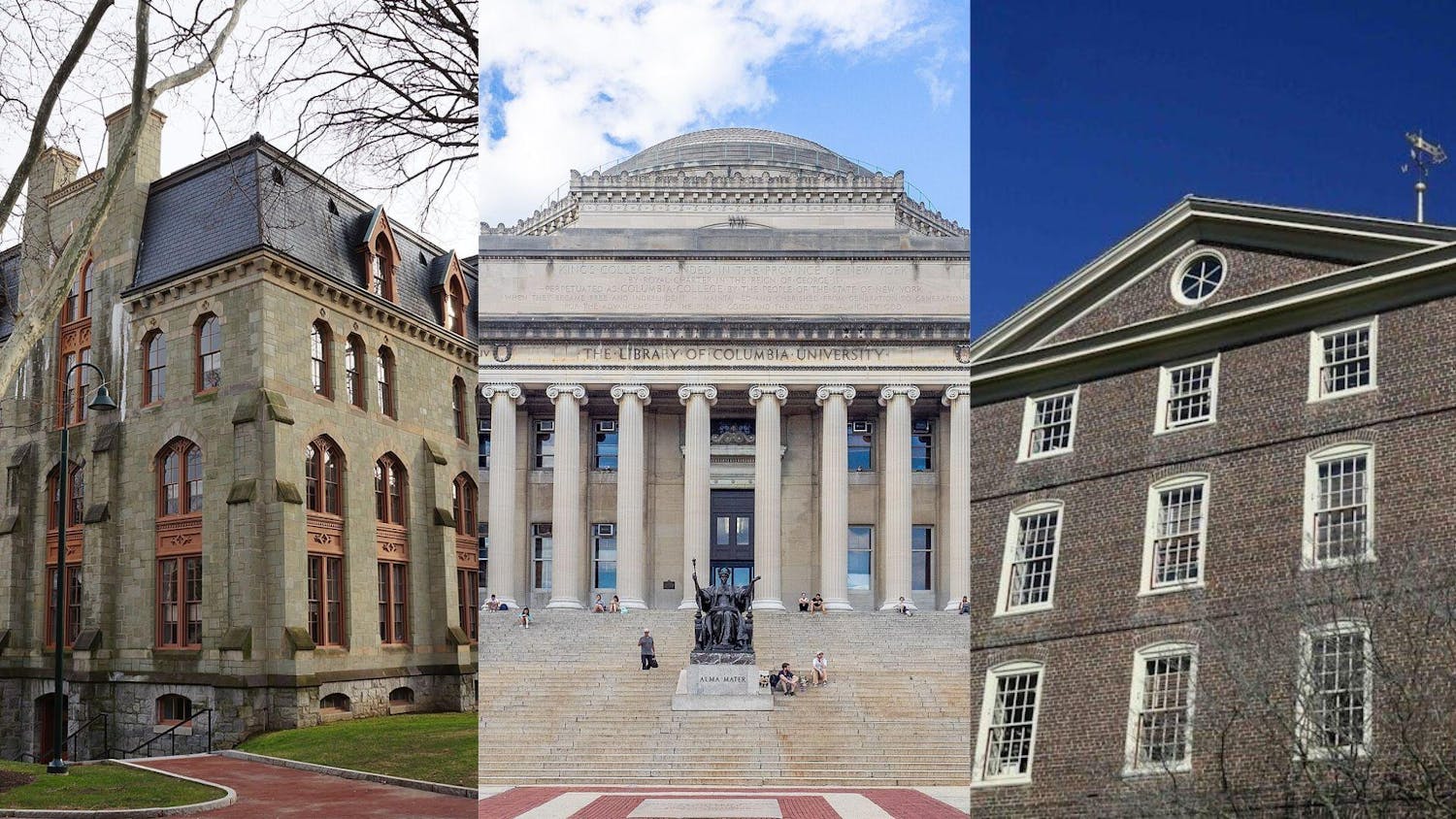The Undergraduate Council of Students and the Graduate Student Council have worked with Facilities Management to submit a one-time funding request through the University’s annual budget process to ensure women's and gender neutral campus bathrooms have free menstrual products, according to Michael Guglielmo Jr., vice president for Facilities Management.
“If approved, funds would be used to install dispensers in … women’s restrooms and to cover the annual cost to stock products for all locations,” he wrote in an email to The Herald.
Guglielmo added that Fiscal Year 2024 department budget requests were submitted in February and will be reviewed in March and April. After being presented to the University Resources Committee, the requests will face final approval by the Corporation — the University’s highest governing body — in May, and be communicated back to departments in June.
According to UCS Vice President Mina Sarmas ’24, when UCS and GSC first suggested the free menstrual products initiative in December 2022, Facilities explained that they would have to request additional funding for product dispenser installation. But the next opportunity for Facilities to submit budget requests did not come until February 2023, according to Mai Huynh GS, who was GSC’s chair of communications last year. The Corporation’s decision on Facilities’ funding request for free menstrual products in all University bathrooms will come in June of this year.
Guglielmo wrote that Facilities will meet with UCS and GSC to determine priority locations for new dispensers depending on “the level of funding approved,” and the installation process “could take up to about three months.”
“The current dispensers do provide a robust supply of products in women’s and gender-neutral restrooms,” he added. In the event that the funding request is not approved, Facilities Management “will continue to keep the existing units in good working condition and well stocked” and “continue to support this initiative through future budget requests as needed,” Guglielmo wrote.
Facilities also asked UCS and GCS for a statement that “compiles student feelings about the project” to submit along with the funding request, Sarmas said. Student comments compiled by the councils expressed support for the initiative and included comments from organizations like the Sarah Doyle Center, Period Equity at Brown and the LGBTQ+ Center, as well as deans of the Graduate School and the School of Professional Studies, according to a statement released by both councils.
Efforts behind the request
The joint effort began late spring 2022 when Huynh reached out to Sarmas to expand the 2016 “Tampon Project” — a UCS initiative to stock hygiene products in bathrooms on campus, Huynh said. She added that when she participated in the fall 2021 Ivy Plus Conference and found out that all bathrooms in Princeton had period products, she wanted Brown to do the same.
Huynh told The Herald that she started a hygiene committee within GSC in the spring of 2022 to receive help and incorporate “other people’s perspectives.” since it was initially just Huynh and Sarmas working with Facilities at that time.
“Because I’m based as a (STEM) grad student, … I’m basically isolated to the Biomed building,” Huynh said. “I want to know how other grad students from other departments felt” about the initiative.
“I thought it was really important to gain insight from students who are non-binary,” she added.
According to Sarmas, who was the UCS chair of campus life last spring, communications with Facilities emerged from the goal of restocking existing menstrual product dispensers around campus in response to students’ feedback.
UCS and GSC conducted surveys among their respective student bodies to provide Facilities quantifiable data supporting the request, Huynh said. The surveys were sent out in May 2o22, according to Huynh and Sarmas.
Huynh acknowledged that while Facilities had conducted a similar survey “a while back,” both she and Sarmas felt it should be made more up-to-date.
Huynh said that GSC’s more recent survey asked students whether there was a dispenser for menstrual products in the bathroom they primarily used and if the dispenser was stocked regularly.
According to Sarmas, the survey for undergraduate students was “slightly different” from the one sent to graduate students. Undergraduates reported on multiple bathrooms because they “go to a lot of different buildings throughout the day, whereas graduate students (tend to always use) one bathroom.” She added that Period Equity at Brown helped with the survey’s distribution.
From the survey results, GSC and UCS created a spreadsheet of on-campus dispensers and how well-stocked they are, which they presented to Facilities in June, Sarmas said. She added that in August, Facilities then provided an updated version of the spreadsheet that included dispensers not listed from the survey’s data.
Guglielmo added that Facilities made an assessment of non-labeled free dispensers and broken dispensers to properly label and repair machines. “They were stocked by the custodial services teams and are monitored as part of their daily routine,” he wrote.
Menstrual product dispenser map on BrownU app
After a meeting with GSC, Sarmas compiled the list into a Google map of bathrooms with available dispensers and reached out to Stephanie Obodda, assistant director of IT user experience strategy for the Office of Information Technology, to integrate that map into the BrownU app.
“I was able to go through (the Google map) and put the unique building IDs in there, so we can match it up with our map data,” said Obodda.
Students can access the free menstrual product dispensers map by selecting the corresponding category in the map page, which has a default shortcut on the app’s home screen, according to Obodda.
Although the map is not automatically updated based on dispenser conditions, Obodda said that IT will work with UCS to ensure the accuracy of the map’s data. Students can additionally submit a facilities request to restock empty dispensers.
“If (students) do (find dispensers on the map) run out of menstrual products … they can just submit a Facilities request to restock it” on the app, said GSC Chair of Communications Farha Mithila GS, who was also involved in the efforts.
Continued efforts to increase period product accessibility
According to Sarmas, both UCS and GSC have developed other initiatives to offer students hygiene products directly.
“GSC stocks the pantry in the graduate student lounge in Grad Center, and UCS in collaboration with Period Equity usually does the distribution once per semester, where we send out a form and people request products and we mail it to them in their boxes,” she said.
In a Feb. 28 email, UCS sent out a form for students to request free menstrual products.
GSC Chair of Communications Farha Mithila GS added that BWell Health Promotion has also worked with GSC to stock sexual health products like condoms in the graduate student lounge.
“One of the goals that we have is really trying to increase equity and inclusion in the dispensers available on campus,” Huynh said, “and really trying to actually get these dispensers stocked regularly.”
“I’m not going to stop until every person on campus who needs a hygiene product is able to access them,” she added.
“Our committee has done a wonderful job working with (Facilities) to make sure this (initiative) happened,” Mithila said, “and I was really happy how receptive they were.”
Correction: A previous version of this story misstated how students could submit restock requests for empty period product dispensers. The Herald regrets the error.

Kathy Wang was the senior editor of community of The Brown Daily Herald's 134th Editorial Board. She previously covered student government and international student life as a University News editor. When she's not at The Herald, you can find her watching cooking videos or writing creative nonfiction.





